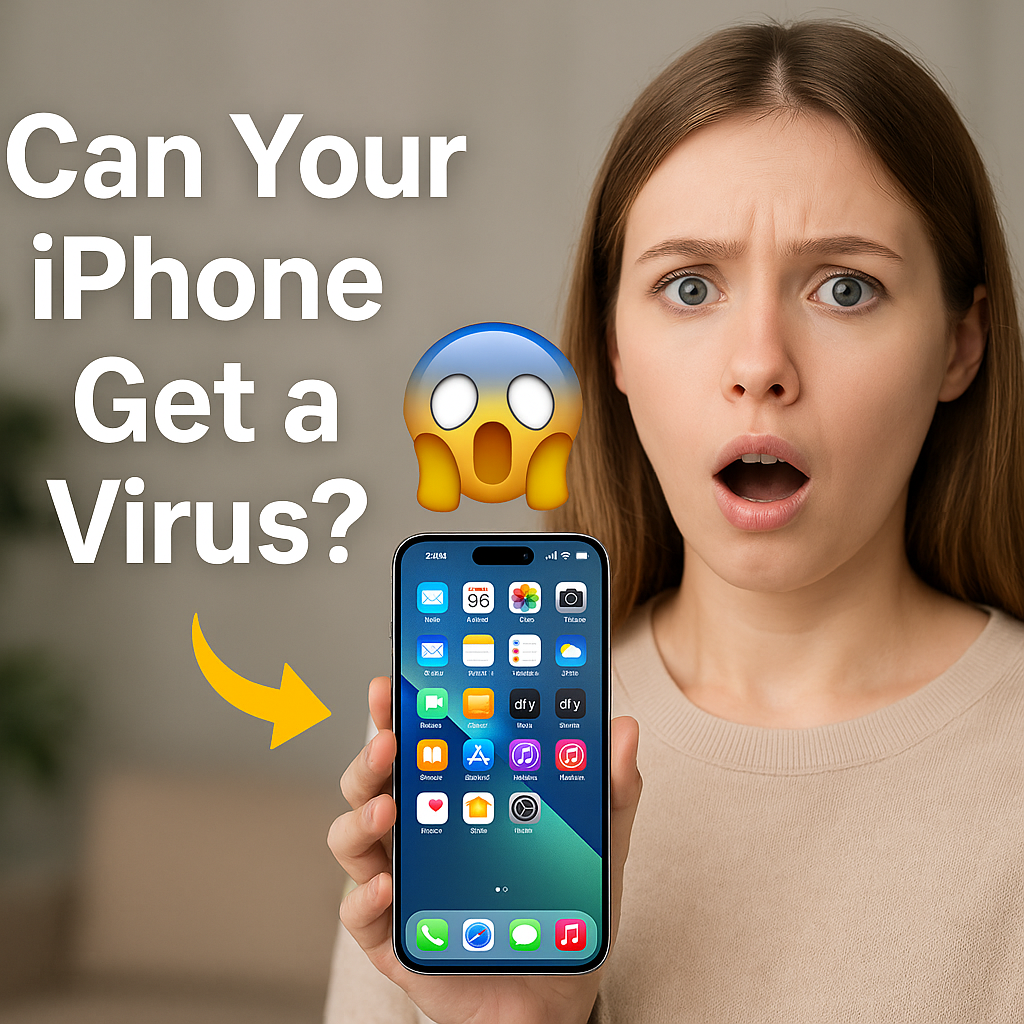Can Your iPhone Get a Virus? (Myths & Real Threats Explained)

“iPhones can’t get viruses” – we’ve all heard it, but is it actually true? While Apple’s walled garden approach makes iPhones more secure than most devices, they’re not completely invincible. Let’s cut through the tech myths and reveal the real security threats your iPhone faces in 2024 – and more importantly, how to protect yourself.
The Hard Truth About iPhone Viruses
Here’s the reality check:
✅ True: iPhones are extremely resistant to traditional computer viruses
❌ False: iPhones are 100% immune to all malware and security threats
Apple’s tight control over the App Store and iOS architecture does provide strong protection, but determined hackers have found clever workarounds.
3 Real iPhone Security Threats You Should Worry About
1. Fake App Scams (Even From the App Store!)
- Scammers copy popular apps with slight name changes
- These can steal login credentials or install tracking software
- Recent example: Fake ChatGPT apps that charged $10/week
How to spot them: Check developer names, reviews, and download counts
2. Phishing Attacks That Trick You
- Fake “Apple Security Alert” texts
- Emails pretending to be from Apple Support
- Calendar invites with malicious links
Red flags: Urgent language, misspellings, suspicious links
3. Malicious Profiles & Enterprise Certificates
- “Movie streaming” sites that ask you to install profiles
- Third-party app stores bypassing Apple’s review
- Can monitor your activity or steal data
Never install profiles unless you absolutely trust the source
5 Signs Your iPhone Might Be Infected
- Rapid battery drain when not in use
- Unusual data usage spikes
- Apps crashing more than normal
- Pop-up ads appearing outside Safari
- Overheating during simple tasks
How to Protect Your iPhone (5-Minute Security Checklist)
- Update iOS immediately when new versions drop
- Use two-factor authentication for Apple ID
- Never sideload apps from random websites
- Check app permissions (Settings > Privacy)
- Install a reputable VPN on public Wi-Fi
When to Panic (And When Not To)
- Don’t worry about random pop-ups in Safari – just close the tab
- Do worry if you installed an app outside the App Store and see strange behavior
- Emergency fix: Backup and factory reset if you suspect serious malware
The Bottom Line
While your iPhone is far more secure than Android devices, it’s not magic. The biggest threats come from social engineering – tricking you into giving away information or installing shady apps. Stay skeptical, keep your software updated, and you’ll be part of the 99% who never experience serious iPhone security issues.
Ever encountered an iPhone security scare? Share your story below – it might help others stay safe!





